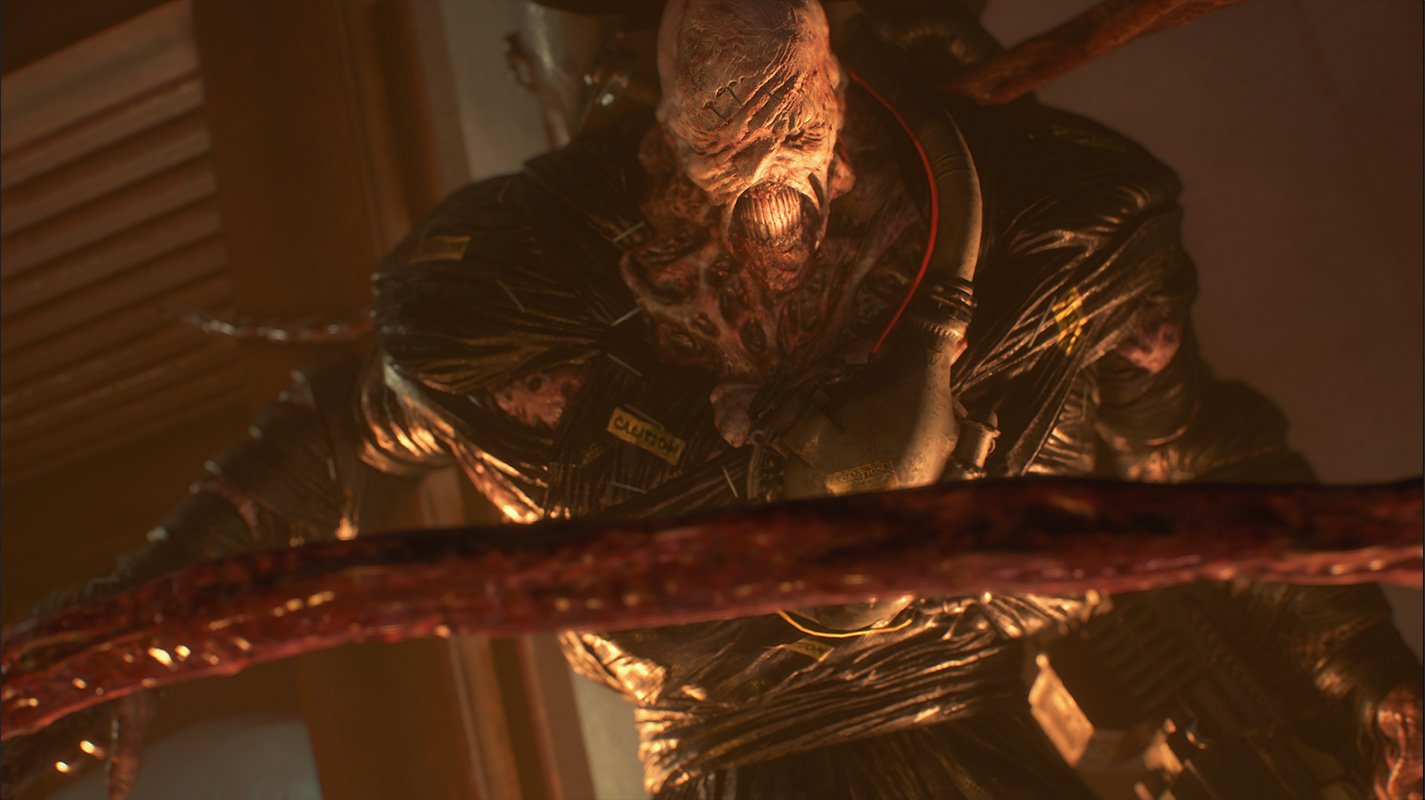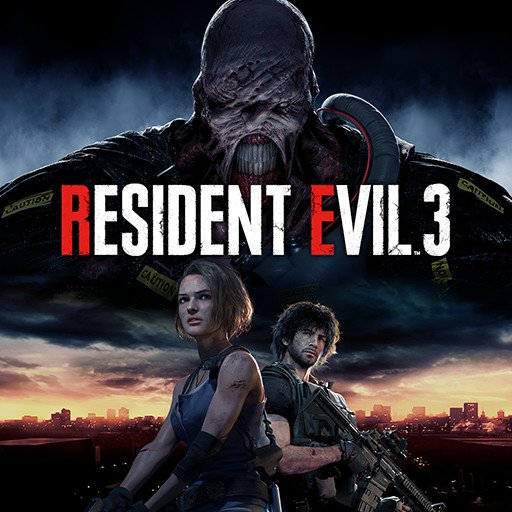Resident Evil 3 might be a great way to deal with the horrors of the COVID-19 pandemic
Some might go for Animal Crossing; others might go for Resident Evil, and that's okay.

All the latest news, reviews, and guides for Windows and Xbox diehards.
You are now subscribed
Your newsletter sign-up was successful
The big question on everybody's minds right now seems to be how to cope with the spread of COVID-19 and the stress the virus puts on not only the global population's health but our infrastructure. It's tough to justify downtime or to have fun when we can't leave our homes and are stuck watching governments around the world mess up handling the crisis.
People are handling this in different ways, which is apparent through the types of media they're consuming. On the one hand, people are losing themselves in charming, no-conflict fodder like Animal Crossing: New Horizons in an attempt to escape reality, and that's acceptable. On the other, people are taking out their frustrations in more violent, intense games like Doom Eternal. That's also fine.
The more confounding are the people who are escaping into media that hits too close to home. Movies like Contagion, a title from 2011 about how a society deals with a pandemic, is topping recent streaming charts. Games like Plague Inc., where you control a plague in an attempt to wipe out the world's population, are also seeing a spike in downloads, which forced the developers at Ndemic Creations to issue a statement about how the game isn't a "scientific model" for a real-world situation. (It also later released an alternate mode that allowed players to stop an outbreak instead of creating one.)
Make no mistake — the Resident Evil games are all dark. But are they too dark for a world in the middle of a pandemic?
It seems only fair then that this week we're getting another entry into the long-running Resident Evil franchise, which, if you're unaware, is about a virus released into the world and how it destroys everything in its path. The games, which range in quality, are all, at the very least, cathartic in the way a lot of combat-focused titles are. Your enemies are typically inhuman zombies or parasitic creatures without the chance for survival, so you're free to gun down as many as you want without any strange dissonance. Most of the main titles also have you stopping a government conspiracy or plot by the endlessly evil Umbrella Corporation and its lackeys to take over the world.
Even when you use the weapons at your disposal to complete the game and save the world, it's always only for a moment. You still can't stop the thousands who die anyway or the havoc they bring on the world at large. Even when Leon Kennedy stops Umbrella and escapes from Racoon City In Resident Evil 2, he still has to go and save the President's daughter from a parasitic plot in Resident Evil 4. The Redfields are constantly faced with new batches of enemies, and Albert Wesker, one of the series' most iconic human villains, continues to gain power and fight against your survival.
Make no mistake — the Resident Evil games are all dark. That's why they make for excellent survival horror experiences. Are they too dark for a world that's in the middle of a pandemic?
There are a lot of similarities between the T-Virus at the heart of the early Resident Evil games (including Resident Evil 3, which is out this week) and COVID-19, which is currently making its way across the world's population. Obviously, the T-virus is worse than COVID-19 since it's always fatal and turns you into a member of the undead, but both diseases elicit similar paranoias. Both can be prevented by ensuring people don't go outside and exposing yourself to others, which puts you at risk of contracting it and then spreading it to others.
All the latest news, reviews, and guides for Windows and Xbox diehards.
In the Resident Evi 3 remake, Jill Valentine, a S.T.A.R.S. officer in Raccoon City, teams up with members of Umbrella to help rescue survivors. The problem is that, as Mikhail Viktor of the U.B.C.S. says, most will become members of the undead. This is standard pandemic fare. As the population waits for a cure, many will die. Depending on the severity of the illness at the pandemic's core, it could be millions. Across media, a pandemic could mean the end of the world, whether you're looking at the Planet of the Apes prequel trilogy or The Walking Dead.
The difference is that in the real world, pandemics have been temporary. The Black Death swept through Europe and killed millions, but Europe continued on anyway. The influenza epidemic of 1918, the last disease to sweep through the U.S. in a way similar to COVID-19, did not turn the country into a post-apocalyptic wasteland. Even though we've faced doomsday events throughout our history, we still managed to survive. This will remain true with COVID-19, even after massive suffering.
It's certainly not the case with the T-virus in Resident Evil, which not only kills a lot of people but reshapes the world with destruction. The pandemic becomes the new normal for people in that universe, and only you can stop it.
There's safety in confronting the pandemic concept from your couch, whether you're watching a movie or playing a video game. This is made more comfortable by how safe we feel knowing that currently, we're waiting things out. With a game like Plague Inc., the player has direct control over the illness. They can make it as effective or ineffective as they want by taking advantage of environmental and societal factors that pop up throughout the game. Of course, it's only a game, so once the round is over, you can put the game down and walk away.

In the Resident Evil games, the T-virus isn't just a bunch of cells that make you cough. It takes on a physical form by transforming the people it infects. That means you can fight the disease directly. You may not know anything about developing vaccines or what goes into the mass production and distribution of medical supplies. Still, you can handle a gun in a video game and shoot down zombies. Resident Evil doesn't present the ultimate power fantasy, but it does provide a least one: the fantasy of control.
The difference between games and reality is that in the real world, pandemics have been temporary.
There's have been countless studies into why we like violent video games, but the general idea is that they give us a sense of control over a story from a place of comfort. Violence is an easy way to introduce interactable conflict into a game, and conflict is necessary for a traditional narrative. Getting players immersed in a story and giving them a semblance of control over how it's shaped is a great way to get them engaged. Ensuring that they can do this in a safe environment is the key, though. You have the potential to get all the good feelings you want without any of the actual hazards.
"These gamers do have an adrenaline rush, and it's noradrenaline, and it's testosterone, and it's cortisol — these are the so-called stress hormones," Iowa State University professor Douglas Gentile told NPR. "That's exactly the same cocktail of hormones you drop into your bloodstream if I punched you… But when you know you're safe, having that really heightened sense of stress can be fun."
Resident Evil is part of a long legacy of survival horror games that up your stress levels by depriving you of a lot of power but giving you just enough to defeat tough enemies. It's why coming out on top feels so good; because it felt impossible. Mr. X in Resident Evil 2 and Nemesis in Resident Evil 3 are the ultimate enemies in these scenarios because you can't defeat on your own. Your weapons don't take them down. Mr. X only went down after you hit him with a rocket launcher. Nemesis is even tougher. It's all a system that works to make you feel triumphant after it's all over. And remember, you can experience all of this from your couch.
You don't need to go outside and face an actual zombie apocalypse, nor do you have to actually go and fight COVID-19. You can just sit down and experience the fantasy of it. Then, you can move on with your life. It doesn't make Resident Evil 3 the best way to get through this current pandemic or deal with the stress and anxiety that a lot of us have been experiencing, but it might help.
Related: Our full Resident Evil 3 review
Xbox
Main

Carli is the Former Gaming Editor and Copy Chief across Windows Central, Android Central, and iMore. Her last name also will remind you of a dinosaur. Follow her on Twitter or email her at carli.velocci@futurenet.com.

